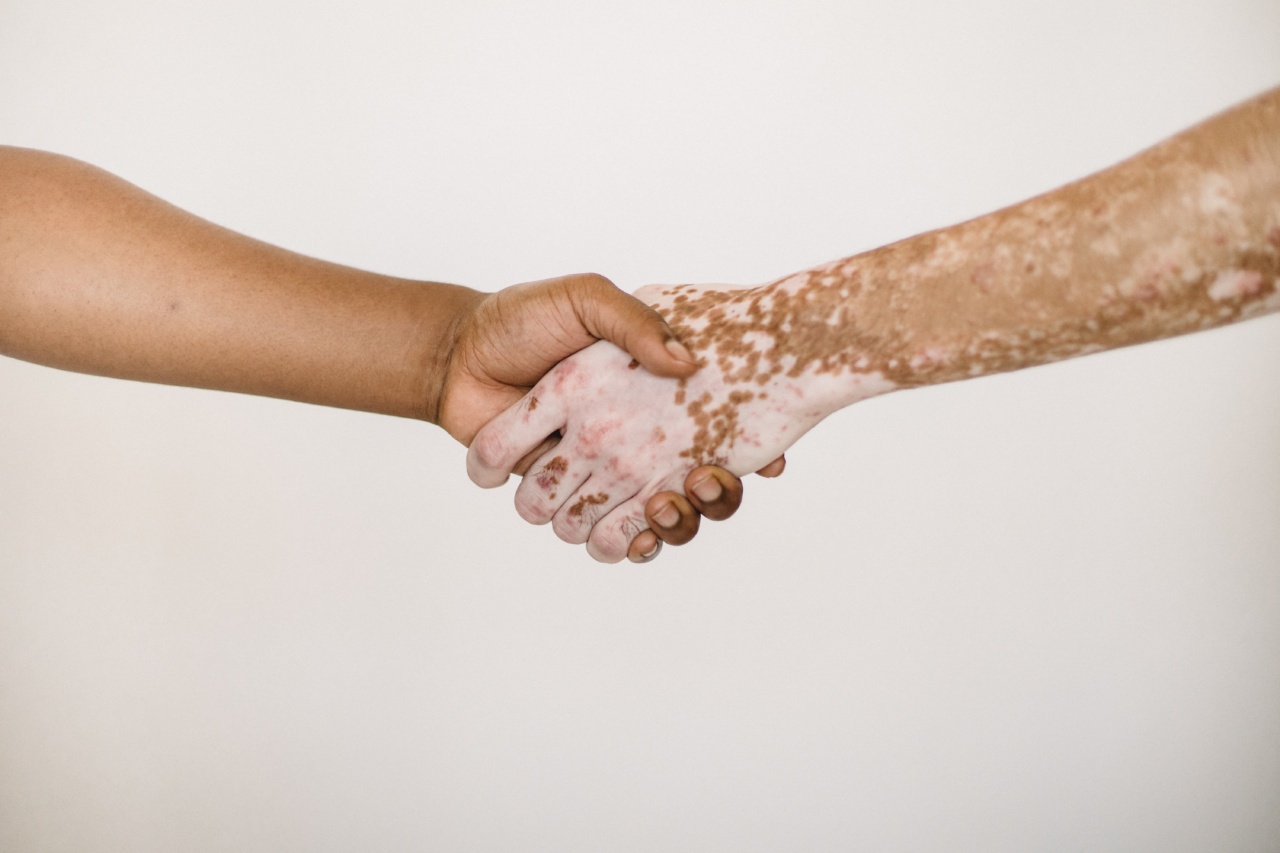Psoriasis and urticaria are two skin conditions that cause discomfort, pain, and embarrassment to those who suffer from them.
Psoriasis is a chronic autoimmune disease that causes red, scaly patches on the skin, while urticaria, also known as hives, is an allergic reaction that causes raised, itchy bumps on the skin. Treatment for these conditions has traditionally been limited to topical creams and oral medication, which can have unwanted side effects and provide only temporary relief.
However, recent advances in medical technology have led to the development of revolutionary therapies that provide hope for those suffering from psoriasis and urticaria.
Biologic Therapy
Biologic therapy is a relatively new treatment option that targets specific cells and proteins in the immune system responsible for psoriasis and urticaria.
Biologics are typically administered as injections or IV infusions and work by blocking the inflammatory response that causes the skin condition. While biologics have been found to be effective in treating psoriasis and urticaria, they can have serious side effects, and regular monitoring is required.
Phototherapy
Phototherapy is a treatment that uses light to treat skin conditions. UV light is applied to the affected area, which can help to reduce inflammation, slow the overgrowth of skin cells, and treat the underlying autoimmune disorder.
Phototherapy can be done in a clinical setting or at home using a lightbox. While phototherapy has been found to be effective in treating psoriasis and urticaria, it can also increase the risk of skin cancer and is not suitable for all patients.
Topical Treatments
Topical treatments are a traditional option for treating psoriasis and urticaria. These creams, ointments, and gels are applied directly to the affected area and can help to relieve itching, inflammation, and redness.
Some topical treatments contain corticosteroids, which can have unwanted side effects like thinning of the skin and increased risk of infection. However, newer topical treatments, like calcineurin inhibitors, have been found to be effective without these side effects.
Dietary Changes
While not a typical medical treatment, dietary changes can help to alleviate the symptoms of psoriasis and urticaria.
Foods that are high in omega-3 fatty acids, like fish and flaxseed, have been found to reduce inflammation in the body, which can help to alleviate the symptoms of psoriasis and urticaria. It is also recommended that individuals with psoriasis and urticaria avoid foods that are known to trigger an allergic reaction, such as shellfish and nuts.
Stress Management
Stress can exacerbate the symptoms of psoriasis and urticaria, so stress management techniques, like meditation and yoga, can be helpful in treating these conditions.
Stress reduction techniques can help to reduce the body’s stress response, which can reduce the inflammation that causes psoriasis and urticaria flare-ups.
CBD Therapy
CBD, or cannabidiol, is a non-psychoactive compound found in the cannabis plant. CBD has been found to have anti-inflammatory properties and has shown promise in treating a variety of conditions, including psoriasis and urticaria.
CBD can be applied topically or taken orally, and studies have shown that it can help to reduce inflammation and itching associated with these skin conditions.
Avoidance of Environmental Triggers
Environmental triggers, like cigarette smoke and pollution, can exacerbate the symptoms of psoriasis and urticaria. Avoidance of these triggers can help to reduce inflammation and prevent flare-ups.
It is also recommended that individuals with psoriasis and urticaria avoid hot showers and baths, which can dry out the skin and exacerbate itching and redness.
Acupuncture
Acupuncture is a traditional Chinese medicine practice that involves the insertion of thin needles into specific points on the body to alleviate pain and discomfort.
Acupuncture has been found to be effective in reducing the symptoms of psoriasis and urticaria. While the exact mechanism by which acupuncture works is not fully understood, it is believed to help regulate the immune system and reduce inflammation.
Exercise
Exercise can help to reduce stress, boost the immune system, and improve overall health, which can all help to reduce the symptoms of psoriasis and urticaria.
However, individuals with psoriasis and urticaria should avoid strenuous exercise, which can trigger flare-ups. Low-impact exercise, like yoga, swimming, and walking, are recommended.
Conclusion
While psoriasis and urticaria can be challenging conditions to manage, these revolutionary therapies offer hope for those who suffer from them.
From biologic therapy to dietary changes to alternative medicine practices like acupuncture, there are a variety of treatment options available that can help to reduce inflammation and alleviate the symptoms of these skin conditions. Consultation with a healthcare professional can help ensure that the best treatment option is identified for each individual patient.































